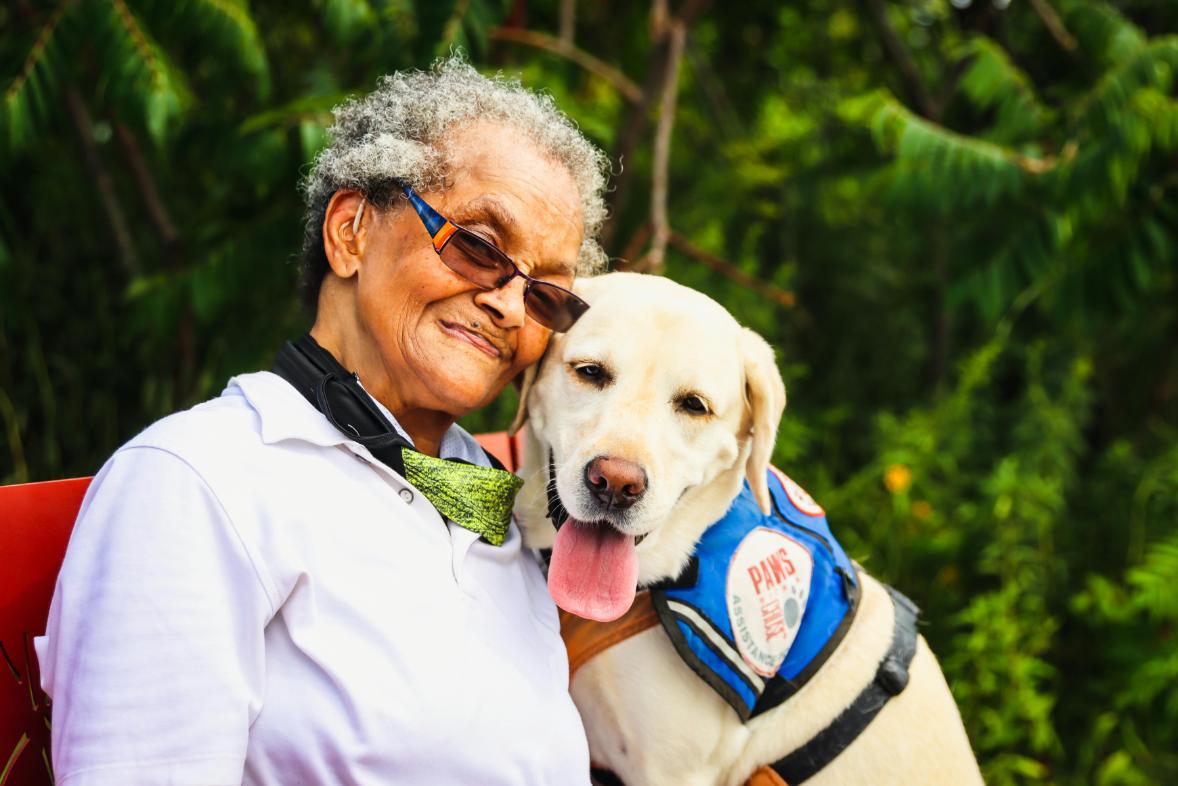What Are The Benefits of Pet Therapy?

The Transformative Power of Pet Therapy in Care Homes
Pet therapy in care homes is far more than a pleasant extra; it is a thoughtful, therapeutic approach that brings comfort, connection, and joy into everyday life for residents. By introducing qualified animals and experienced handlers into the home, residents are offered safe, meaningful opportunities to interact, reminisce, and build relationships in a way that feels natural and uplifting. For many people, especially those who may feel isolated, anxious, or disconnected from their previous routines, time spent with a calm, affectionate animal can become one of the most anticipated parts of the week. Families also play a key role, joining sessions, sharing memories, and seeing first-hand how pet therapy supports their loved one’s emotional wellbeing.
What Is Pet Therapy In Care Homes?
Pet therapy, often called animal-assisted therapy or animal-assisted activities, involves carefully selected animals visiting residents as part of a structured care programme. These animals, usually dogs, cats, rabbits, guinea pigs, or even small ponies, are chosen for their calm, friendly nature and are always accompanied by trained handlers who understand both animal behaviour and the needs of older adults. Sessions can take place in communal lounges, gardens, or residents’ rooms, and are always tailored to each person’s comfort level, health needs, and preferences. Rather than being a one-off novelty, pet therapy can be built into the activity calendar so that residents see familiar animals regularly and form genuine bonds with them. This consistency helps create a sense of routine and reliability, which is especially reassuring for people living with dementia or anxiety.

How Pet Therapy Works Day to Day
During a typical session, residents may stroke, brush, talk to, or gently play with the animals, always with support from staff and handlers to keep everyone safe and relaxed. Some residents enjoy simply sitting quietly with a dog resting at their feet, while others may like to help with simple tasks such as offering treats, light grooming, or walking a small dog a short distance. These activities are not just pleasant; they are intentionally used to encourage movement, stimulate conversation, and provide a soothing sensory experience. Care teams can also weave pet therapy into individual care plans. For example, residents working on mobility might practice gentle reaching or walking while interacting with an animal, while residents who struggle with low mood may have regular one-to-one dog visits to provide comfort and routine. Staff and families are encouraged to share feedback so sessions can evolve with residents’ changing needs and preferences.
Easing Loneliness & Offering Companionship
Loneliness is one of the biggest challenges for many people living in care homes, particularly after life changes such as bereavement, reduced mobility, or moving away from familiar surroundings. A visiting therapy animal can help fill that emotional gap by providing unconditional affection and a non-judgemental presence. Residents often talk to the animals as if they were old friends, sharing stories, worries, and memories that they may find harder to express in other settings. This sense of companionship does not end with the animal; it ripples through the home as pet visits naturally draw people together, sparking conversations between residents, staff, and family members who gather to watch, stroke, and laugh about the animals’ personalities. Over time, these shared moments help strengthen community bonds and build a warmer, more connected atmosphere throughout the care home.
Memory, Interaction, & Building Connections
For residents living with dementia or other memory difficulties, animals can unlock memories and emotions that may otherwise be hard to reach. The feel of soft fur, the sound of gentle barking, or the sight of a wagging tail can remind someone of pets they once loved, family homes, or favourite walks, often leading to rich reminiscence and conversation. These moments of recall can support cognitive stimulation and offer families precious glimpses of familiar expressions and stories that they may not often see. Animals also act as natural conversation starters and social bridges. Residents who may feel shy or find it difficult to engage in group activities often feel more at ease when their focus is on an animal rather than on themselves. Even simple interactions such as offering a treat or commenting on the animal’s behaviour can help residents join in, feel included, and build confidence with others around them.
Involving Families In Pet Therapy
Family involvement is an important part of making pet therapy truly person-centred. Relatives can be invited to attend sessions, take part in activities, and help staff understand which animals or types of interaction their loved one enjoys most. Talking about past pets, favourite breeds, or funny animal stories can become a meaningful way for families to connect, especially if conversation is sometimes difficult due to cognitive changes or hearing loss. For many families, watching a loved one smile, reach out, or become more talkative during pet therapy can be deeply reassuring. It shows that, beyond clinical care, emotional and social needs are also being recognised and supported. Families can also support ongoing success by sharing feedback, photos, and ideas with the care team, helping ensure pet therapy remains relevant, safe, and enjoyable for everyone.
Types of Therapy Animals Used
Care homes can work with a variety of animals, each offering different benefits depending on residents’ preferences and abilities. Dogs are often the most popular, known for their loyalty, affection, and flexibility in both calm visits and more active sessions such as short walks or gentle games. Cats are ideal for residents who prefer quieter, more settled interactions, with a soothing purr and a comforting presence on a lap or beside a chair. Rabbits and guinea pigs are gentle, small animals that are perfect for close-contact interaction, especially for people who may be nervous of larger animals or have limited strength. Occasionally, specially trained miniature ponies or other animals visit gardens or outdoor spaces, offering a memorable experience that residents and families can enjoy together. By offering a mix of animals, care homes can match visits to individual personalities, for example pairing a quiet resident with a calm cat, or inviting a more active resident to join a small group walk with a dog.
Qualified, Safe, and Well-Managed Therapy
A successful pet therapy programme always starts with safety and quality. Therapy animals should be mature, well-socialised, fully vaccinated, and health-checked, with a proven calm temperament suitable for busy care environments. Reputable animal-assisted therapy providers put their animals and handlers through training that covers behaviour, infection control, handling techniques, and understanding the needs of people in care settings. Handlers and care staff work together to manage risk assessments, hygiene, and clear guidelines, such as handwashing after contact and keeping animals away from food preparation areas. Residents’ allergies, phobias, and cultural preferences are always respected, and participation is entirely voluntary so that everyone feels comfortable and in control of their experience. With these safeguards in place, pet therapy can flourish as a safe, uplifting, and trusted part of holistic care.
Discover Pet Therapy For Your Loved One:
If you would like your loved one to experience the comfort, companionship, and connection that pet therapy can bring, you are encouraged to contact the care home team to learn more about the visiting animals and how sessions can be tailored to individual needs. Families are warmly invited to join pet therapy visits, share memories, and help shape activities around favourite animals and meaningful moments from home life. To find out more or to arrange a visit, get in touch today and ask about upcoming pet therapy sessions and how your family can be involved in this gentle, life-enhancing part of care.






